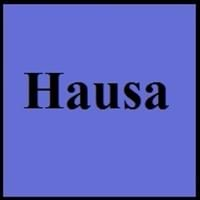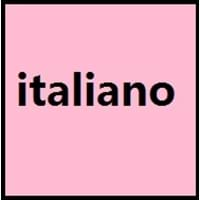Countries
Nigeria
Croatia, European Union, Italy, San Marino, Slovenia, Switzerland, Vatican City
National Language
Gambia, Nigeria
Italy, San Marino, Switzerland, Vatican City
Second Language
Nigeria
Albania, Croatia, Malta, Slovenia
Speaking Continents
Africa
Europe
Minority Language
Benin, Cameroon, Cote d'Ivoire, Ghana, Niger, Sudan, Togo
Crimea, Eritrea, France, Libya, Monaco, Montenegro, Romania, Somalia
Regulated By
Not Available
Accademia della Crusca (Academy of the bran)
Interesting Facts
- Hausa language is the most important and the best known of the Chadic branch.
- There are about one-fourth of Hausa words come from Arabic.
- One of the most romantic and melodic language in the history of the world is Italian.
- Italian Language is in the top three of the most widely spoken European languages in Europe.
Similar To
Not Available
French and Portuguese Languages
Derived From
Not Available
Latin
Alphabets in
Hausa-Alphabets.jpg#200
Italian-Alphabets.jpg#200
Writing Direction
Not Available
Left-To-Right, Horizontal
How Are You?
yaya dai
Come stai?
Good Night
mai kyau dare
buonanotte
Good Evening
barka da yamma
buonasera
Good Afternoon
barka da rana
buon pomeriggio
Good Morning
mai kyau safe
buongiorno
Please
Don Allah
Per Favore
Bye
sai anjima
arrivederci
I Love You
Ina son ku
Ti amo
Excuse Me
gafara dai
Scusami
Dialect 1
Gaananci
Romanesco
Where They Speak
Ghana
Lazio
How Many People Speak
Not Available
Dialect 2
Kurhwayanci
Central Italian
Where They Speak
Niger
Abruzzo, central Marche, Lazio, south Tuscany, Umbria
How Many People Speak
Not Available
Dialect 3
Daragaram
Tuscan
Where They Speak
Niger
Corsica, Gallura, Haute-Corse, Sardinia, Tuscany, Umbria
Native Name
حَوْسَ (ḥawsa)
Italiano
Alternative Names
Abakwariga, Habe, Haoussa, Hausawa, Kado, Mgbakpa
Italiano
French Name
haoussa
italien
German Name
Haussa-Sprache
Italienisch
Pronunciation
Not Available
[itaˈljaːno]
Ethnicity
Hausa–Fulani people
Italians
Language Family
Afro-Asiatic Family
Indo-European Family
Branch
Not Available
Not Available
Early Forms
No early forms
No early forms
Standard Forms
Hausa
Italian
Signed Forms
Not Available
italiano segnato "Signed Italian" & italiano segnato esatto "Signed Exact Italian"
Scope
Individual
Individual
ISO 639 6
Not Available
itas
Glottocode
haus1257
ital1282
Linguasphere
19-HAA-b
51-AAA-q
Language Type
Living
Living
Language Linguistic Typology
Subject-Verb-Object
Subject-Verb-Object
Language Morphological Typology
Fusional
Fusional, Synthetic
All Hausa and Italian Dialects
Most languages have dialects where each dialect differ from other dialect with respect to grammar and vocabulary. Here you will get to know all Hausa and Italian dialects. Various dialects of Hausa and Italian language differ in their pronunciations and words. Dialects of Hausa are spoken in different Hausa Speaking Countries whereas Italian Dialects are spoken in different Italian speaking countries. Also the number of people speaking Hausa vs Italian Dialects varies from few thousands to many millions. Some of the Hausa dialects include: Gaananci, Kurhwayanci. Italian dialects include: Romanesco , Central Italian. Also learn about dialects in South American Languages and North American Languages.
Hausa and Italian Speaking population
Hausa and Italian speaking population is one of the factors based on which Hausa and Italian languages can be compared. The total count of Hausa and Italian Speaking population in percentage is also given. The percentage of people speaking Hausa language is 0.52 % whereas the percentage of people speaking Italian language is 0.90 %. When we compare the speaking population of any two languages we get to know which of two languages is more popular. Find more details about how many people speak Hausa and Italian on Hausa vs Italian where you will get native speakers, speaking population in percentage and native names.
Hausa and Italian Language Codes
Hausa and Italian language codes are used in those applications where using language names are tedious. Hausa and Italian Language Codes include all the international language codes, glottocodes and linguasphere.





